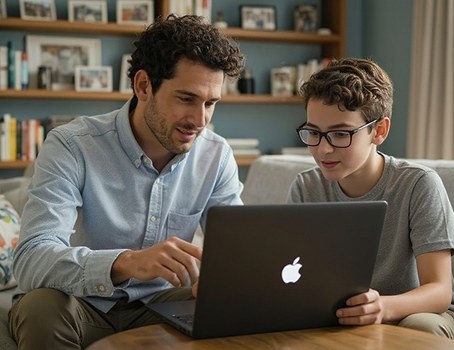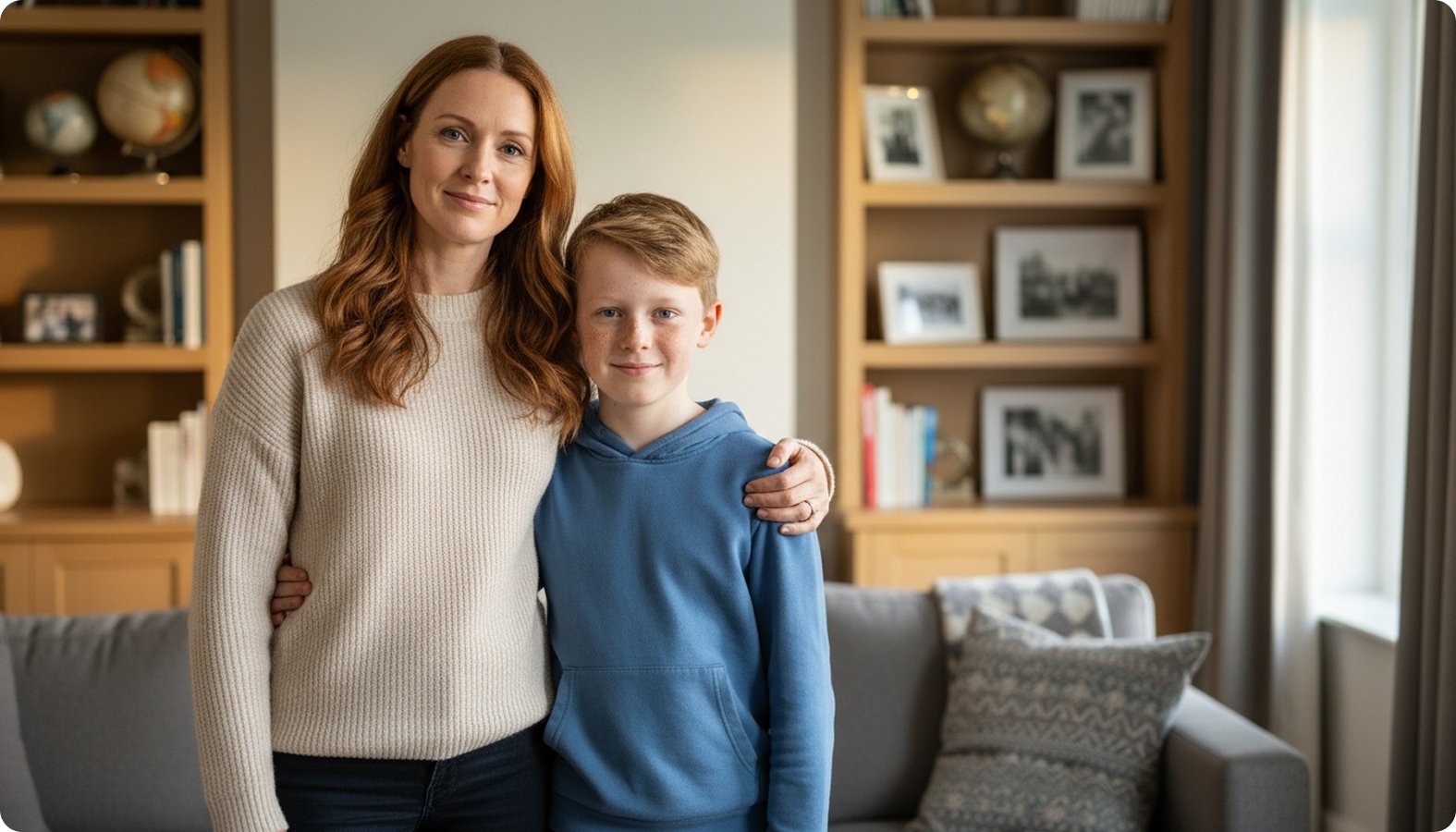My name is Marcus, and I work as an IT security analyst at a bank in London. One evening last November, I came home from work to find my 13-year-old son Ethan sitting silently at his computer, his face drained of color. "Dad, I think I messed up," he whispered. He'd clicked a link in his gaming group promising free rare skins. They asked for his password. He gave it. Now his email was locked, his game account was gone, and someone was demanding money to give it back. My heart sank. I deal with cyberattacks every day at work, training employees to spot phishing scams, but seeing my own kid fall for one? The irony wasn't lost on me. That hit different.
Meet the Pemberton Family Story
Turning a phishing attack into a powerful lesson in online safety

Our Family's Struggle

Challenge
Ethan was nearly in tears. "I didn't know it was fake! Everyone in the group was talking about it!" I wanted to lecture him, to ask how he could be so careless. But I stopped myself. He was scared enough already. I helped him change every password, reported the scam to the police, and contacted his gaming platform. The whole time, my mind raced. I work in cybersecurity—how did I not prepare him for this? That night at dinner, Ethan barely touched his food. "Am I in trouble?" he asked quietly. I took a breath. "Ethan, you just paid tuition for the most important class you'll ever take—online safety." But I knew this couldn't happen again. I needed a better way to protect him while teaching him to protect himself.

Solution
The next morning, I installed FamiSafe on Ethan's laptop and phone. I set up web filtering to block known phishing sites and suspicious links. But the real change came from our weekly "security talks." Every Sunday after breakfast, we'd spend 20 minutes reviewing scam tactics—fake giveaways, too-good-to-be-true offers, urgent messages asking for passwords. At first, Ethan rolled his eyes. "Dad, I get it already." Then one day he came home from school buzzing with energy. "Dad! Three kids in my class got scammed the exact same way I did!" That's when it clicked for him. Now he's the one warning his friends. "Don't click random links!" he tells them. Last week, he even caught a phishing email targeting me. Our whole family is more aware now.
The Pemberton Family Today







